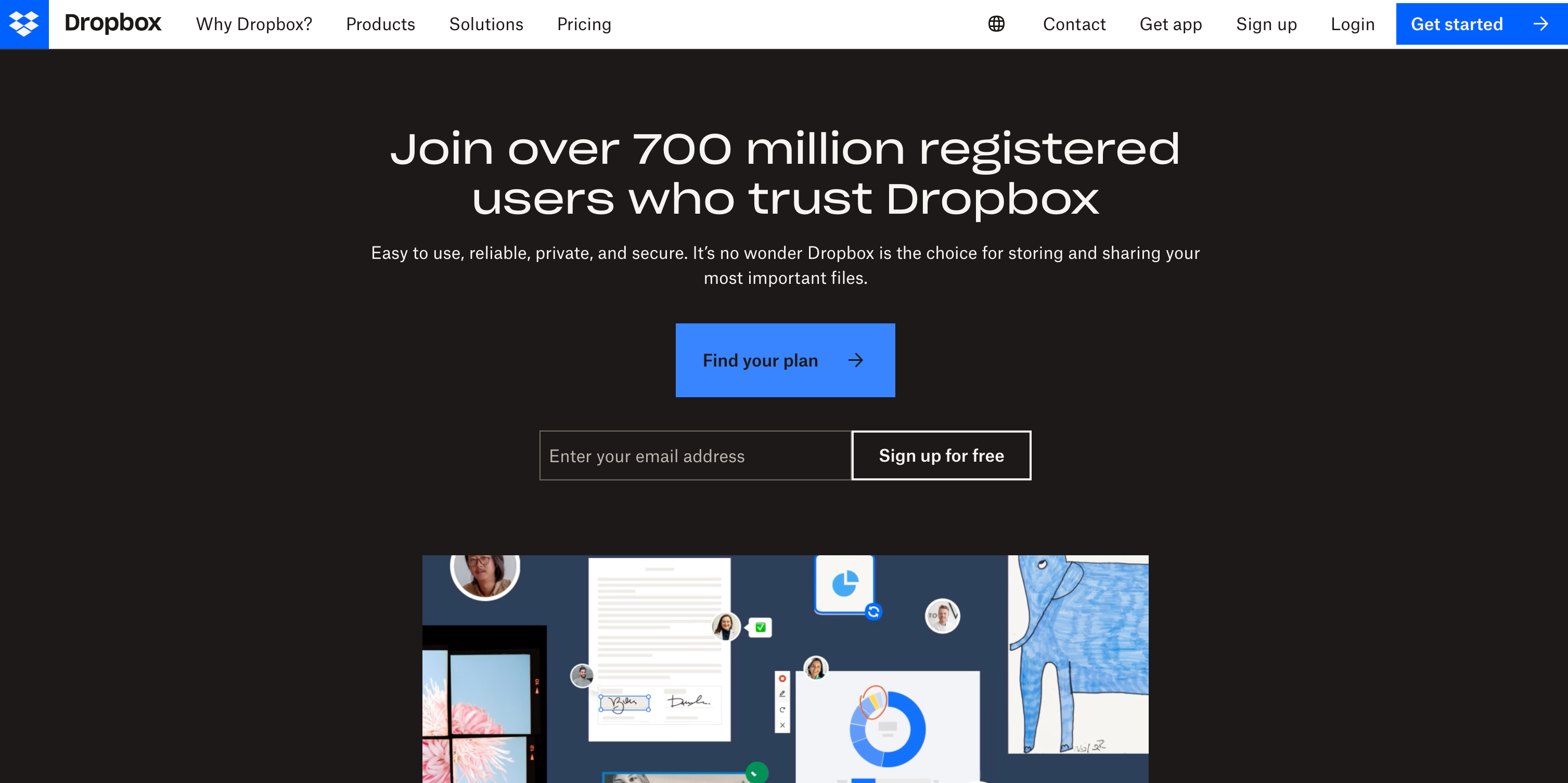This page may contain affiliate links. Please read my disclosure for more information.
There’s an allure of being a tech entrepreneur, especially in today’s digital age. We’re living in a world where an idea, app, blog, or platform can change how millions, or even billions, of people live, work, or play.
Think about Uber, Airbnb, or even TikTok. These aren’t just apps; they’re revolutions in how we commute, vacation, or even spend our lunch breaks.
Have you noticed how crucial tech companies are these days? I’m not just talking about the big giants like Google or Amazon. Even smaller tech startups are defining what our next generation’s solutions look like. They’re solving problems we didn’t even know we had or creating needs we didn’t realize we’d want.
Whether it’s health tech making it easier to monitor our fitness, ed-tech making learning more interactive for kids, or an IT consultant writing a blog to help the everyday person navigate tech stuff, the ripple effect of these companies is massive.
In this article, I’ll show you how to become a tech entrepreneur, and we’ll interview Kristoffer Athun. Kristoffer is a tech entrepreneur and seasoned IT consultant. You’ll learn more about how he balances his professional endeavors and personal life, particularly juggling his tech blog business and being a dedicated father.
What is Tech Entrepreneurship

A tech entrepreneur is someone who not only leverages technology to innovate, disrupt, or carve out new market niches but also often shares their journey and expertise with a broader audience.
Many of these tech entrepreneurs are also tech bloggers or influencers, helping others navigate and understand the intricate world of technology. At the heart of tech entrepreneurship is a passion for blending technology with solutions, addressing current challenges and untapped opportunities.
Whether they’re the brains behind today’s cutting-edge tech companies or tech bloggers demystifying complex topics for their readers, these visionaries harness technology to both redefine industries and educate.
In today’s digital world, technology is more than just a tool; it’s how we create change. Tech entrepreneurs tap into this transformative power to offer solutions and capture markets. Platforms like Google and social media giants like Facebook have harnessed technology to connect and cater to millions of users. They demonstrate the capability of tech in business and how it can shift the world.
The technology entrepreneur understands the value of predictive analytics, machine learning, and next-generation software in creating a vision for their business. With such tools, small business owners can foresee market trends, understand customer acquisition strategies, and shape their business plans around the constantly evolving digital landscape.
Tech entrepreneurs thrive in the digital world. They’re often focused on scalable solutions that thousands can use. Their startups might begin in a Silicon Valley co-working space or a home office.
How to Become a Tech Entrepreneur

History has shown us that a great idea can change the world. You don’t have to be the smartest person in the room to start a tech company and contribute. Even a tech person teaching others how to use and interact with technology has a ripple effect on society, businesses, and an individual’s everyday quality of life. Access to knowledge transforms the way we communicate, work, and entertain. Despite the challenges of being a successful entrepreneur, becoming a tech entrepreneur can be very rewarding. Here are the steps you should take to get started.
Understand the problem you’re solving
A simple but essential step. Getting from a vague idea to a clear answer is a challenge in and of itself. Before spending time, energy, or money on a problem, you should learn as much as possible about it. You need to know everything about it.
Don’t fall for the Shiny Object Syndrome
Despite believing you have covered all bases, the entrepreneurial journey will always have surprises. Be aware of being lured into the “next big thing” that comes your way, as it may divert your attention. Keep your sight of your core goal and avoid distractions. New ideas and information can be insightful, but you don’t want to let them derail your main goal.
Learn Self Management
Being your own boss can be challenging. Creating a work-life balance and developing effective work habits is critical. It’s important to recognize when you are most productive and use that time to schedule your most difficult tasks. Depending on your strengths and budget, you may also want to seek out or delegate responsibilities.
Encourage Team Synergy
Beyond self-management, understanding interpersonal dynamics is essential. You, as the leader of your team, set the example. Aim to create an environment where collective intelligence and ideas are shared, debated, and refined. Innovative leaders and successful entrepreneurs surround themselves with even more intelligent individuals. Some of the most successful tech entrepreneurs don’t necessarily have all the answers, but they know the value of assembling a team of experts who do.
Stay Relevant and Informed
It’s essential to keep up with the latest tech trends in your niche. Understand relevant information and developments. Attend trade seminars, online courses, conferences, and industry expos to keep your company relevant and on point with the constantly changing technical skills.
Key Characteristics of a Tech Entrepreneur

A tech entrepreneur is an innovator, leader, and strategist. They bring solutions to the market and push boundaries, often creating new industries. Beyond their personal endeavors, tech entrepreneurs often guide teams and instill a clear vision and innovation. They anticipate user needs and strategize their company growth accordingly. Tech entrepreneurship connects different worlds and bridges the gap between tech developers and consumers. A tech entrepreneur should have some or all of the following key characteristics:
Tech-Savviness
While a tech entrepreneur doesn’t need to be a coder or engineer, a solid understanding of technology is helpful. A tech entrepreneur should comprehend technological trends, recognizing which innovations have potential and how these can be integrated into possible products or services.
Visionary Outlook
Tech entrepreneurs often look beyond the present, imagining what the future could look like. They’re not just reactive; they’re proactive, identifying needs or gaps in the market before they become obvious to the majority.
Adaptability
Technology evolves at a rapid rate. To stay relevant and ahead of the curve, tech entrepreneurs must be flexible and willing to pivot when needed.
Problem-Solving Aptitude
Tech entrepreneurs are natural problem solvers, continually seeking ways to make processes more efficient, user-friendly, and impactful through technology.
Resilience
As with any entrepreneur, a tech entrepreneur should be resilient to help them navigate challenges, learn from failures, and persist in their mission.
Tech Entrepreneur vs. Traditional Entrepreneur
While the basic principles of entrepreneurship remain the same – spotting opportunities, taking risks, and creating value – there are distinct differences between tech entrepreneurs and traditional entrepreneurs:
Tech entrepreneurs primarily operate within the digital and technological world, harnessing software, hardware, or other tech solutions. A tech entrepreneur may design an app or start a blog to address a specific need or niche in the market. Look at famous tech entrepreneurs like Elon Musk, Steve Jobs, and Bill Gates. Their companies significantly focus on technological advancements and digital solutions.
In contrast, traditional entrepreneurs might venture into areas like manufacturing, services, or retail. They might operate their business from a brick-and-mortar location or start an online store, but their main focus is not the technology but the product or service they offer.
Examples of Famous Tech Entrepreneurs
There are many different types of tech entrepreneurs. If you haven’t decided what kind of tech entrepreneur you want to be, it may help to see what others have done. Let’s take a look at some of them.
Drew Houston (Dropbox)

Drew Houston co-founded Dropbox in 2007 with Arash Ferdowsi. The company provides cloud storage and file synchronization services. Houston came up with the idea for Dropbox after he lost his flash drive containing important files. He wanted to create a way to store and access files online easily. Dropbox has over 700 million users and is one of the world’s most popular cloud storage services.
Pete Cashmore (Mashable)
Pete Cashmore is a Scottish blogger and entrepreneur who founded Mashable in 2005. Mashable is a technology news and culture website with over 100 million monthly visitors. Cashmore started Mashable as a personal blog to share his thoughts on technology. The site quickly grew in popularity, and Cashmore turned it into a successful business. Mashable has been praised for its innovative design and ability to provide timely and relevant news about technology.
Adi Tatarko (Houzz)

Adi Tatarko is an Israeli-American entrepreneur who founded Houzz in 2009. Houzz is a home remodeling and design platform that allows users to find inspiration, get advice, and hire professionals. Tatarko came up with the idea for Houzz after she and her husband remodeled their home. She wanted to create a way for people to find and connect with home improvement professionals easily. Houzz has over 40 million monthly users and is one of the world’s most popular home remodeling platforms.
Alex Shevchenko, Max Lytvyn, and Dmytro Lider (Grammarly)
Alex Shevchenko, Max Lytvyn, and Dmytro Lider are the visionary trio behind Grammarly, which was founded in 2009. This digital tool, designed to improve grammar and writing prowess, rapidly gained popularity and became indispensable for countless individuals seeking to enhance their English writing. With over 30 million users, Grammarly stands out as one of the world’s foremost grammar checkers.
Ivan Zhao, Chris Prucha, Jessica Lam, Simon Last, and Toby Schachman (Notion)

Notion Labs Inc., headquartered in San Francisco and established in 2013, is the brainchild of a dedicated team: Ivan Zhao, Chris Prucha, Jessica Lam, Simon Last, and Toby Schachman. Their collaborative effort has resulted in Notion, a multi-faceted workspace platform lauded for its seamless integration of note-taking, task management, databases, and more. Their vision and execution have positioned Notion as a standout in the productivity software arena.
Reshma Saujani (Girls Who Code)
Reshma Saujani is an American entrepreneur and activist who founded Girls Who Code in 2012. Girls Who Code is a non-profit organization that teaches girls coding and other computer science skills. Saujani came up with the idea for Girls Who Code after realizing there were not enough women in the tech industry. Girls Who Code has taught over 500,000 girls coding skills and helped close the gender gap in the tech industry.
Whitney Wolfe Herd (Bumble)

Whitney Wolfe Herd is an American entrepreneur who founded Bumble in 2014. Bumble is a dating app that allows women to make the first move. Wolfe Herd came up with the idea for Bumble after she left Tinder, where she was a co-founder. She wanted to create a dating app that was more empowering for women. Bumble has over 85 million monthly users and is one of the most popular dating apps in the world.
Building Your Tech Startup
There are many key factors to consider when launching a tech business. Let’s dive into each of these aspects.
Write a Business Plan
You’ll want to write a business plan with a clear and concise purpose, vision, and mission statement. In the business plan, you’ll highlight the market gap you’re targeting, provide demographic insights, and forecast potential growth. You’ll detail your products or services, your offering, and its unique selling proposition (USP). In the business plan, you’ll also explain how you plan to generate revenue, outline daily operations, and provide financial projections.
Social Media & Online Presence
Social media is a powerful tool for promoting your technology company. It will help you find new customers and build relationships with them. You can also use social media to generate leads and drive traffic to your website. You’ll want to choose the right platform based on your target audience and deliver consistent branding across all platforms.
Website Development
When developing your website, you’ll want a user-friendly and responsive design. Pay attention to SEO (Search Engine Optimization) for increased visibility and partner with a hosting company that offers secure and fast hosting. You’ll want to integrate other digitals, such as email marketing platforms like ConvertKit.
Funding and Capital
There are many different ways to fund a tech startup. Let’s review them:
- Bootstrapping – Self-funding using personal savings or revenue.
- Venture Capital – Securing investment from VC firms in exchange for equity.
- Angel Investors – Individual investors offering capital for equity or convertible debt.
- Crowdfunding – Raising small amounts of money from a large number of people via platforms like Kickstarter or Indiegogo.
- Bank Loans – Traditional loans from financial institutions.
- Small Business Grants – Funds provided by governments or organizations that don’t need to be repaid.
- Accelerators/Incubators – Programs offering capital, mentorship, and resources in exchange for equity.
- Convertible Notes – Loans that convert into equity during future financing rounds.
- Equity Crowdfunding – Selling shares of your startup to a large number of investors.
- Strategic Partnerships – Forming alliances with other companies where they invest in your startup in return for potential future benefits.
- Product Pre-sales – Selling your product before it’s created or launched.
Technical Expertise
For startups, choosing between in-house and outsourced development is crucial. While in-house teams offer more control and alignment with the company’s vision, outsourcing can be cost-effective and provide access to a broader skill set. Regardless of the choice, it’s essential to have up-to-date knowledge of current tech trends and tools. Startups should prioritize building a technical infrastructure that can be scaled as the business grows. This helps the company expand its technology and supports its growth.
Team Building and Human Resources
To build a thriving tech startup, hiring the right talent tailored to specific roles is essential. Beyond just skills, it fosters healthy team dynamics and promotes collaboration. As the backbone of any successful enterprise, a company’s culture and values should resonate with every team member, ensuring everyone works towards a common vision with shared enthusiasm.
Market Research
Effective market research is pivotal for any tech startup. It involves identifying market gaps and understanding customer pain points, ensuring your solutions address user needs. You can pinpoint your unique differentiation in the market landscape by conducting a competitive analysis. Moreover, establishing continuous feedback mechanisms allows you to adapt and refine your offerings, staying aligned with evolving consumer demands.
Product Development
In the world of tech startups, product development often begins with crafting an MVP, or Minimum Viable Product. This MVP is designed and tested to get early user feedback. Based on this feedback, iterative development ensures that the product evolves and improves over time. Integral to this process is quality assurance and testing, ensuring that every version meets the highest standards and efficiently fulfills user needs.
Sales and Marketing
For any tech startup, mastering sales and marketing is crucial. This starts with a thoughtful pricing strategy, ensuring your product is competitive and valuable. To grow, having a robust customer acquisition plan is essential, guiding how you’ll attract and retain users. Your branding and positioning are equally vital, defining how you stand out in the marketplace and resonate with your target audience.
Legal and Compliance
Navigating the tech startup world requires a keen understanding of legal and compliance aspects. Protecting your innovations through intellectual property measures like patents and trademarks is essential. Additionally, adhering to industry-specific regulations ensures your business operates within the bounds of the law. Furthermore, drafting clear contracts and agreements with partners or clients solidifies business relationships and safeguards interests.
Networking and Partnerships
In the tech startup journey, forging strong networks and partnerships can be transformative. Building relationships with industry leaders and peers opens doors to insights and opportunities. Collaborations and joint ventures can amplify your reach and resources. Moreover, attending relevant conferences and workshops expands your knowledge and puts you in the same room with potential allies and collaborators.
Continuous Learning and Adaptability
In the ever-evolving tech landscape, continuous learning and adaptability are indispensable. It’s vital to stay updated with industry trends and shifts, ensuring you’re always a step ahead. Market dynamics can change rapidly, and the ability to pivot when necessary can make all the difference. Within your team, fostering a culture of innovation and learning ensures that everyone remains agile, informed, and ready for the challenges ahead.
Customer Support and Service
For a tech startup, the heart of success often lies in customer support and service. Having effective and prompt support channels ensures that customer queries and concerns are addressed swiftly. Regularly collecting feedback and acting on it improves the product and shows customers they are valued. By consistently delivering exceptional service, businesses can build trust and foster long-term loyalty with their user base.
Conclusion: The Ultimate Goal of a Tech Entrepreneur

At the core of every tech entrepreneur’s journey is a burning drive to solve pressing problems and introduce valuable solutions to the world. It’s this very passion that fuels innovation, change, and progress. To every aspiring tech entrepreneur, remember that while challenges are unavoidable, the opportunity to make a meaningful difference is limitless.
FAQ: How to become a tech entrepreneur
Q: What exactly does a tech entrepreneur do?
A: A tech entrepreneur identifies problems or needs within the technological sphere and innovates solutions to address those issues, typically in the form of products or services.
Q: Do I need a tech background to become a tech entrepreneur?
A: While having a tech background can be beneficial, it’s not mandatory. Many successful tech entrepreneurs partner with tech experts or hire skilled professionals to handle the technical aspects.
Q: How important is a business plan for a tech startup?
A: A business plan is crucial as it provides a roadmap for your startup, helping you identify your business goals, target audience, competition, financial needs, and more.
Q: How do I fund my tech startup?
A: Funding options include venture capital, angel investors, crowdfunding platforms, bootstrapping, bank loans, and more. The right choice depends on your startup’s needs and growth stage.
Q: How do I protect my tech idea or product?
A: Protecting intellectual property is vital. Consider obtaining patents, trademarks, or copyrights. Also, use non-disclosure agreements (NDAs) when discussing your idea with potential partners or investors.
Q: How can I stay updated with the latest tech trends?
A: Engage in continuous learning through tech journals, blogs, webinars, conferences, and workshops. Networking with industry peers can also offer insights into the latest developments.
Q: What role does networking play in a tech entrepreneur’s journey?
A: Networking is essential. Building relationships with industry leaders, attending events, and collaborating with peers can open doors to opportunities, partnerships, and invaluable insights.
Q: How do I know if my tech idea is viable?
A: Conduct thorough market research, identify gaps and customer pain points, and get feedback. Testing your product or service as a Minimum Viable Product (MVP) can also help gauge its potential.
Q: How crucial is customer support for a tech startup?
A: Exceptional customer support is key. It resolves user issues and builds trust and loyalty, which can significantly impact your startup’s growth and reputation.
Q: Is adaptability important for a tech entrepreneur?
A: Absolutely. The tech industry is dynamic, and staying adaptable ensures you can pivot in response to market changes, customer needs, or industry shifts.







+ show Comments
- Hide Comments
add a comment